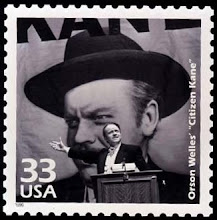They certainly show up on TV enough that I give them a second
chance, but quickly get bored or frustrated by the effort. Maybe because long before Bond and Bond, I
knew Roger Moore and Pierce Brosnan as The Saint and Remington Steele—the
former still self-amused but less long in the tooth, the latter a suave and
charming movie addict surrounded by mystery and not epic stupidity. And as great as he is, most of the Connery films have fared
quite badly over the years; even “classics” like Goldfinger only serve to
remind you that more often than not, his Bond was actually a pretty incompetent spy.
And now we have Skyfall.
The raves were inescapable, and Daniel Craig was a more rough-and-tumble
incarnation, which I preferred (I consumed the Ian Fleming novels in my youth),
so I had my hopes up. Certainly, Casino
Royale was above average and had some terrific setpieces, but still took too
long to get to the point. Quantum of
Solace made little sense from start to end.
And while there’s a lot to like in Skyfall—its believable stuntwork,
its sense of franchise continuity, its earnestness in burrowing into Bond’s
psyche—for me, like most Bonds, the whole is less than the sum of its parts.
There’s only one Bond film I really, really like: From
Russia with Love (Young, 1963). Maybe it’s because
its villains are scary without being cartoonish (by comparison, Javier Bardem’s baddie
practically plagiarizes Batman’s Joker’s rictus grin). Maybe it’s because the stakes (a Cold War decoding
machine) are proportionate to the proceedings; once world domination because
the redundant goal in these films, everything had to be bigger, but rarely
better. In Russia, there are no crazy gadgets,
and some Turkish flavor but little gratuitous globe-hopping. Plus, there is a genuinely gorgeous woman (Daniela Bianchi)
who doesn’t strain credulity by doubling as a brilliant scientist and sexual
pushover. The film as a whole is lean, gritty, exciting,
but never overplays its hand.
For someone allegedly good at cards, Bond usually overplays
his hand. And Skyfall almost does, too.
For as ably executed and well-cast as it is, there is only one thing genuinely
special about it, but it’s a doozy.
Roger Deakins is the cinematographer this time and his contribution is
nothing short of miraculous—perhaps the best below-the-line asset any Bond film
has had since John Barry’s Russia score and Shirley Bassey’s brassy pipes
(though Adele holds her own here, too).
The Bond films have always indulged in location photography,
but it always played as mere travelogue porn (including my own Bay Area home here in
San Francisco), settling for getting landmarks in frame and exploiting local “exoticism”. But Deakins captures the exquisite details of
lights, reflections, colors, and compositions.
Bond has always been about sex (literally or metaphorically), but this
film brings something new to the series—visual sensuality. It is glorious to gaze upon and elevates the film to
something far more promising. That the
content (from story motivation to final resolution) doesn’t quite deliver the
goods isn’t Deakins’s fault. His work is
masterful, and makes this Bond one that stands out.
After wonderfully reliable work for Scorsese, Sayles, Mendes, and
the Coens (among others), there’s something perversely irresistible at the
thought he might win a long overdue Oscar for a Bond film. But I hope he does. For truly, nobody does it better.
The Chinese Year of the Tiger stamp is Scott #3895c.
The Chinese Year of the Tiger stamp is Scott #3895c.


No comments:
Post a Comment